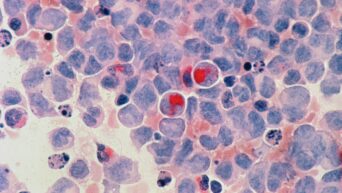Fear is an emotion that is not only found in humans, but all living things.
Fear can be measured in the brain, with life-threatening events leaving long-lasting remnants in the neural circuitry. This can cause behaviors similar to post-traumatic stress disorder. A recent study showed that wild animals can exhibit a fear of predators similar to the effects of PTSD.
The effects of predator exposure on the neural circuitry of wild animals can last well beyond the fight or flight response. The response can remain measurable more than a week later. Research shows that PTSD is not unnatural, and that the long-lasting effects of predator-induced fear with likely effects on survival are normal in nature.
There are also signs that retaining a powerful memory of a life-threatening predator encounter is evolutionarily beneficial if it helps the individual avoid these kinds of events in the future. It has been proposed that PTSD is the cost of inheriting a primitive mechanism that looks at the importance of survival over the quality of life.
Predators can affect prey by scaring them and that predator exposure could impair parental behavior for prolonged periods of time with greater negative effects on offspring survival. This information was gathered from a study conducted on black-capped chickadees.
The birds were exposed to audio playbacks of the vocalizations of predators and non-predators. They were then housed together for a seven-day period without any exposure to further experimental cues. The fearful behavior was quantified by measuring each individual reaction to hearing a chickadee alarm call and the long-lasting effects on neural circuitry.
































